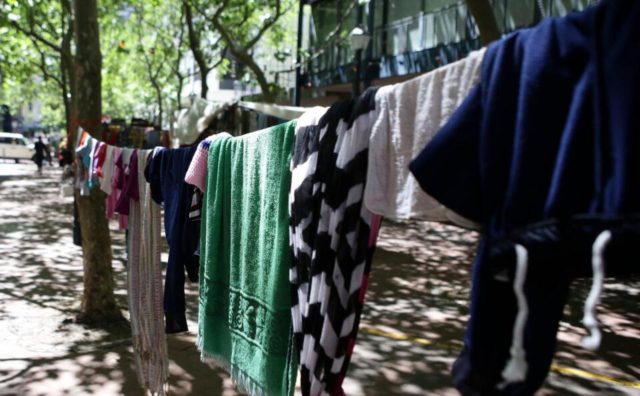This violence specifically targeted black African refugees who often bear the brunt of South Africa’s socio-economic upheavals as convenient scapegoats for governance failures
FOR more than two weeks now several hundred refugees and asylum seekers have staged a sit-in at the entrance to the Cape Town offices of the UN High Commissioner for Refugees agency, hoping to draw the attention of the world.
A similar sit-in has also been staged at the UNHCR’s offices in Pretoria.
In the midst of xenophobia in South Africa, dysfunctional Home Affairs processes, and a hardening of attitudes by ordinary South Africans, this group of protesters, along with their children, are demanding that they be granted safe passage to First World countries like Canada, western Europe and the US.
Many of those protesting find themselves in limbo because their asylum claims have either been rejected by Home Affairs, or their status has not been renewed.
For many, simply returning to the countries from which they fled is a matter of life or death.
The protests in Cape Town and Pretoria come barely two months after an outbreak of violence against foreign-owned businesses in Gauteng.
This violence specifically targeted black African refugees who often bear the brunt of South Africa’s socio-economic upheavals as convenient scapegoats for governance failures.
In Parliament yesterday, outgoing Johannesburg Mayor Herman Mashaba pleaded for assistance from MPs, saying the Home Affairs Department, which should deal with documenting foreigners, was dysfunctional.
Mashaba had earlier complained that governing was made difficult because his officials at the City of Johannesburg were unable to plan for and provide adequate services to residents when there was a question mark over the number of people who lived in the city.
One example he cited was that up to 39% of those who access the city’s health care facilities were undocumented foreign migrants.
Contrary to the view of many, refugees are not a drain on the public purse.
The truth is that while most refugees are not employed in the formal sector, they contribute disproportionately to economic activity and create opportunities for everyone.
While South Africa’s economy has failed to create jobs, we can take a leaf from the refugees’ book in how small businesses can be a catalyst for economic growth.








